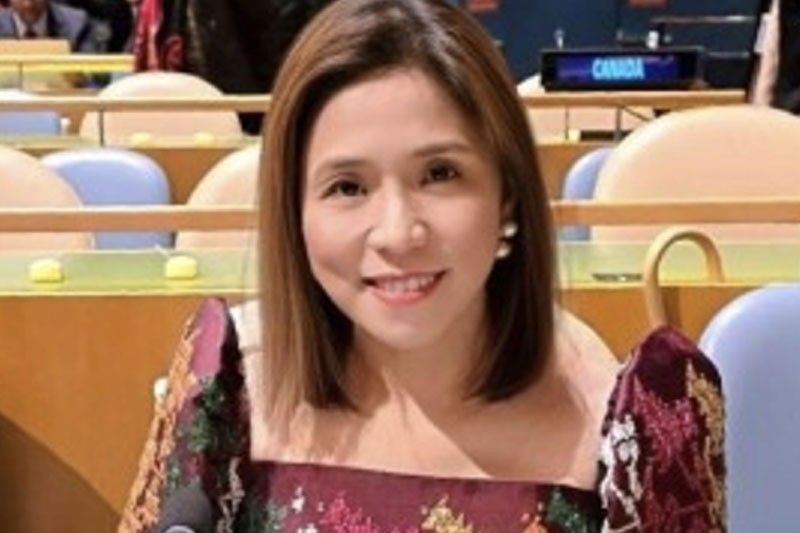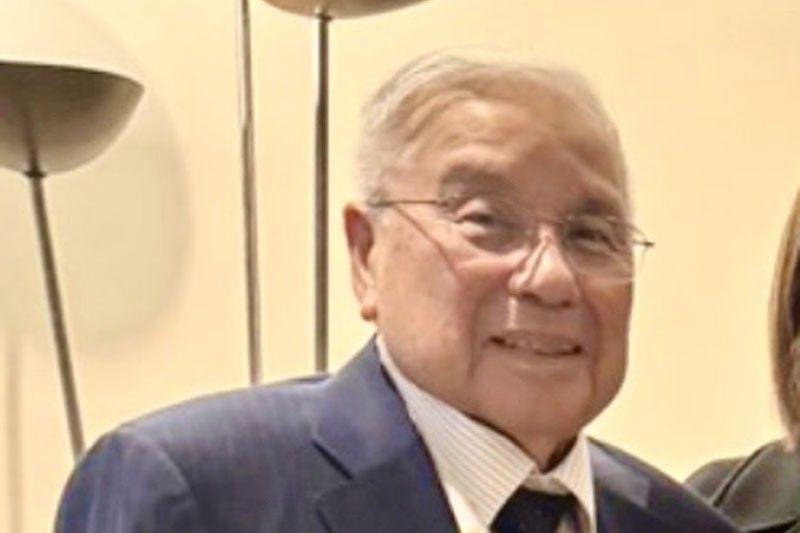At the UN, women find ways to battle inequality, poverty, violence and digital illiteracy


NEW YORK CITY — Every year, the Commission on the Status of Women (CSW) gathers thousands of individuals from governments, civil society organizations, experts and activists at United Nations Headquarters in NYC to discuss the most pressing issues facing women and agree on actions that can end women’s poverty and advance gender equality.
“There is very strong participation from member states, and this indicates the importance of the session,” says Antonio Lagdameo, Permanent Representative of the Philippines to the United Nations.“Among those who attended include a President, several Vice Presidents and Prime Ministers and more than 100 Ministers.”
He said governments have been able to share their policies and good practices on promoting gender equality, including their anti-poverty strategies and gender-financing programs. “There is also very high interest from NGOs and civil society, as more than 10,600 representatives of NGOs and civil society registered to participate in the meeting.”

Personally, I can’t think of a more fitting venue than the United Nations, which flies flags from 195 countries outside its headquarters. Once you get past the heavily secured gates, an outdoor square displays public art that are gifts from countries like Luxembourg, which donated an anti-violence sculpture of a gun with its muzzle knotted; and a golden “Sphere within Sphere,” a bronze globe depicting the emergence of a new world from the old.
Inside the building hang silk portraits of the eight former UN Secretary-Generals, a gift from Iran, where carpet-weaving is part of the culture, and tapestries are highly valued.
I spent most of my time inside conference rooms where side events were taking place. At talks like “Holistic Digital Transformation towards Strengthening Institutions and Gender Financing to Achieve Poverty Alleviation, Gender Equality and Women’s Empowerment,” I heard about the current challenges facing women (Filipinas, in particular) and what solutions the public and private sectors are proposing.

Poverty caused by loss of employment or business. Budget Secretary Amenah Pangandaman, who headed the Philippine delegation at UN CSW68, said that in the Philippines, “As a testament to our commitment to financing with a gender perspective, government agencies have been allocating at least five percent of their budget to support programs and activities on GEWE (gender equality and women’s empowerment) since 1995. In 2022, we spent an estimated $18.9 billion on gender programs.”

Pangandaman said they continue to strengthen our institutions and social-protection programs to address women’s poverty. “Our Pantawid Pamilyang Pilipino Program, a conditional cash-transfer program with a budget that has exponentially increased from $5.37 million in 2008 to $1.9 billion this 2024, has benefited 4.4 million Filipino households.”
Cash grants are given directly to mothers of eligible households, increasing their ability to invest in the wellbeing of their families, thereby improving their survival, health and access to the education of their children. Programs such as Kapatid Mentor Me offer women entrepreneurs coaching, mentoring and government loans.
Said Rep. Geraldine Roman, who represents the First District of Bataan, “(Congress has) also increased funding for TESDA (Technical Education and Skills Development Authority), recognizing that skills training contributes to the economic emancipation of women.”
Lack of connectivity, portable devices and digital literacy for women in rural areas. “This not only deprives women of the ability to share their stories and perspectives, but actually reinforces their exclusion from the very online discourse that directly impacts their lives,” notes Emerald Ridao, Undersecretary for Digital Media Services of the Presidential Communications Office.

Online harassment of women and minors. Ridao says that the Philippines has over 93 million active social-media users, and 62% of those — or more than half — are women who are shaping online discourse. “Online platforms become a breeding ground for the use of artificial intelligence for deep fakes and revenge porn, or even just harassment that disproportionately targets women and girls versus men and boys.”
Meanwhile, in the Philippine House of Representatives, Roman says, “We just passed the expansion of the Anti-VAWC (Violence against Women and Children) Act to include online forms of violence and harassment, that penalizes online forms of harassment against women and minors, fully cognizant that such criminal activities create obstacles for women in their access to the digital economy. Criminal acts include online scams, online sexual harassment — which usually victimizes young women — and online shaming.”
Violators are penalized through fines as well as years of imprisonment, depending on the gravity of the act.
“We also passed legislation that improves internet connectivity in our country,” Roman added.
Teenage pregnancy and child abuse. “Child abuse and teenage pregnancy is a growing challenge,” acknowledges Lagdameo. “With regard to child abuse, this should be addressed from the human rights, crime and social development perspective. Compliance with the Rights of the Child should be advocated; criminalization of child abuse should be legislated; and protection mechanisms for child victims should be established.
“With regard to the teenage pregnancy issue, education, particularly, age-sensitive and culturally appropriate sex education, would be an important factor in addressing this. It is also important to work with parents towards educating teenage children about the risks of teenage pregnancy.”
Inequality under the Family Code. “Under our present laws, the man always has the final say when it comes to family decisions,” notes Roman. “Also, property disputes — it’s always the man who has the final say. So, we want to give women an equally important voice when it comes to decision making within the family.”
Inequality and lack of safety in the workplace. Lagdameo says the Philippines has laws to ensure equal pay for equal work between men and women, as well as laws to address discrimination against women in hiring and promotion.
Ridao urges governments and the private sector to prioritize implementation of policies and initiatives that promote equality and diversity within organizations. “This includes methods to address the disparities to promote women to leadership positions, but more than anything is really just ensuring a safe and inclusive work environment for women and girls.”
She continues, “In the Philippines, for example, the Presidential Communications Office will be working with stakeholders to publish a gender-fair media guidebook that will serve as a reference for both government communicators and the private media to convey messaging in more gender-neutral terms, using language that is also sensitive to the experience of women in marginalized communities, women with disabilities, and women in conflict-affected areas.”
The perpetuation of harmful stereotypes and biases in media and content. We must challenge and disrupt the perpetuation of harmful stereotypes and biases about women in media and content. “In stateside events on women in film, for example, we were dismayed to find out that across the globe, even in countries that had already made strides in women’s issues, we would still see these exaggerated telenovela tropes where women are portrayed as overly emotional or overbearing or still exclusively the subject of sexual interest in television today,” says Ridao. “And these are what our children are seeing, this is what our young girls are seeing. So, the reality is that we must acknowledge the role we play in the perpetuation of these stereotypes. We are complicit by remaining silent. We can all do more to hold filmmakers and media companies accountable for the representations and portrayals of women.”
What we can do
Adopt the Agreed Conclusions from CSW68. The Philippine Commission on Women leads the Philippine government in the implementation of the outcome documents (Agreed Conclusions) of the Commission on the Status of Women, according to Lagdameo. “The Agreed Conclusions of this year that is currently being negotiated talks about access to economic and productive resources of women; addressing violence and harassment at work; provision of social-protection systems, public services, and sustainable infrastructure that supports the productivity of women; support for women-owned and women-led enterprises.”
After the adoption of the Agreed Conclusions in New York, the PCW convenes an interagency and intersectoral conference in Manila to present the Agreed Conclusions with the aim of aligning the policies and programs of the government with the Agreed Conclusions, he continues. “It must be noted, however, that the outcome documents of the CSW are not legally binding. They are guidelines, norms, and good practices that the government can adopt, according to its own national laws and policies.”
Invest in education. Many speakers urged governments and NGOs to invest in more capacity-building programs that equip young women with the skills to excel in the digital media landscape, including access to digital media literacy programs, mentorship programs, entrepreneurship support — anything to navigate and keep up with the rapidly changing digital landscape.
“You do not need a huge follower base or tech-savvy video-editing skills to become a woman in digital,” Ridao says. “With access to the internet, initiatives from your government and the support of your communities, every woman can be a woman in digital.”
Strengthen the Women Peace and Security Agenda, which will have its 25th anniversary in 2024. This is a priority for the Philippines, according to Lagdameo. “For this purpose, the Philippines will hold an international conference in October 2024 and another one in 2025. ‘Women and conflict’ is one of the areas of concern of the Beijing Platform for Action.”
Uphold women’s rights. The rights and well-being of women migrants, older women, indigenous women, women with disabilities and other women in vulnerable situations are some of the consistent priorities of the Philippines, according to Lagdameo.
Increase women’s representation in politics. Roman says that congress passed the Women in Political Parties Act, which seeks to increase the number of women in positions of power by incentivizing political parties to include women and how they do their quotas. “At least 40 percent of political parties should be constituted by women, and also financial incentives,” she says.
Ensure women’s safety during natural disasters. Pangandaman says there are ongoing efforts to set up nationwide evacuation centers to cater to women and girls during disasters.
Establish the Bangsamoro Women Commission, which integrates gender initiatives into the Bangsamoro region’s priority agenda and is a venue for women in the public sector and civil society to join in promoting a gender-fair and open government.
L
agdameo says that, compared to other developing countries, the Philippines is doing well regarding gender equality. “In the Gender Parity Index, the Philippines is second only to New Zealand in the Asia-Pacific region,” he notes. “The CSW is the main platform for promoting the empowerment of women, including in the economic sphere. All the outcome documents of CSW in recent years include strong elements for the economic rights and empowerment of women, and more so after the pandemic.”
Let’s hope that by the time CSW69 is held at the UN next year, the Philippines will have even better news to report regarding gender equality and women’s empowerment.
* * *
Follow the author @theresejamoragarceau on Instagram and Facebook.



















